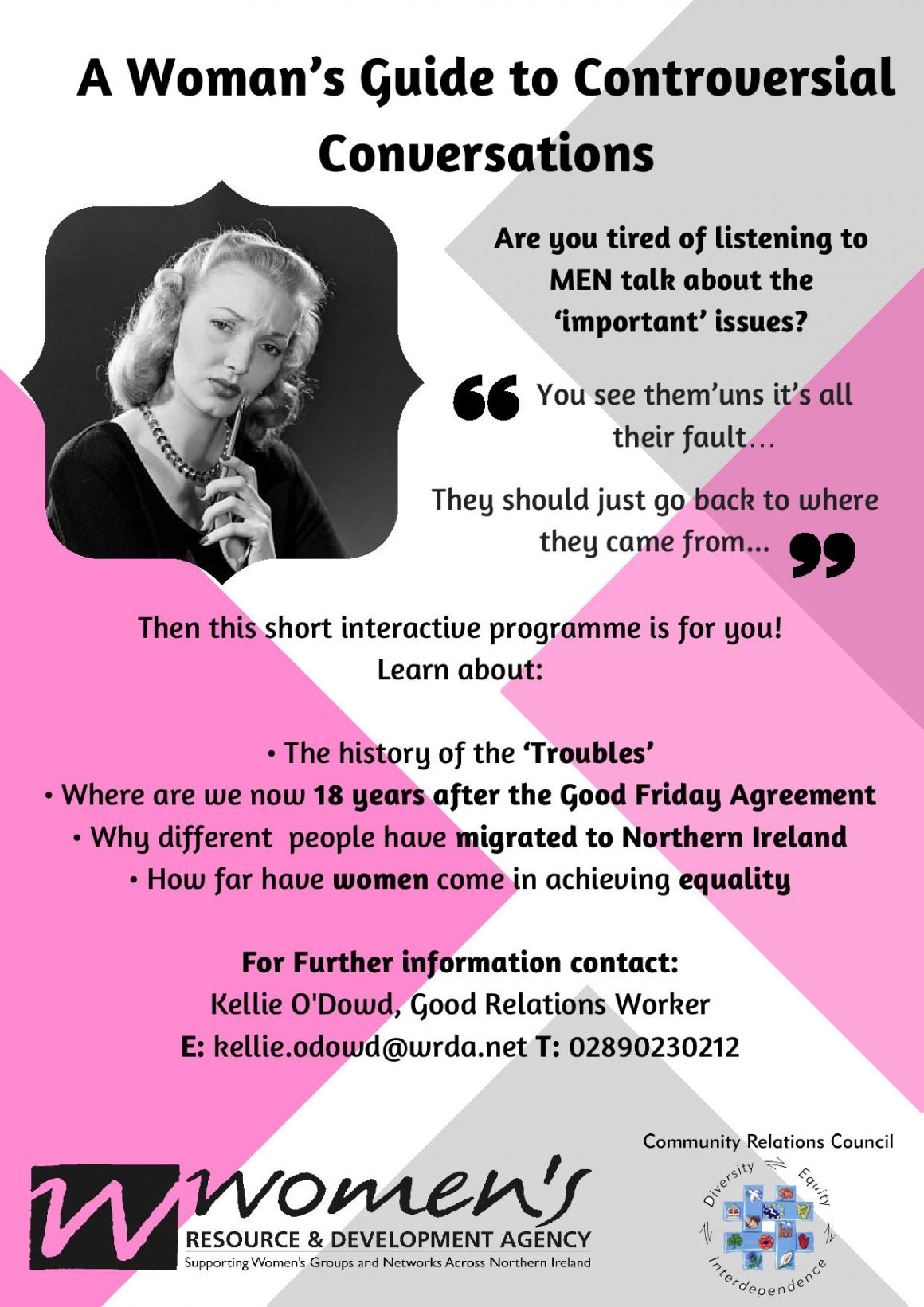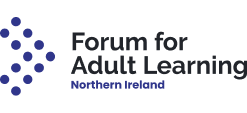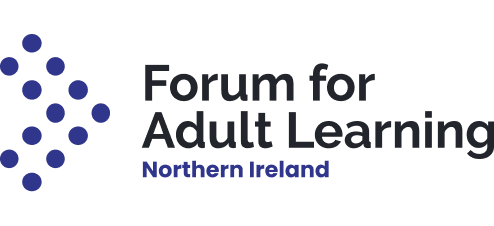
The gender neutral nature of community relations policy has been critiqued by the women’s sector in a number of consultations which noted “ the exclusion of women from official policy and structures is a perennial problem…… They appear ignorant or dismissive of the positive role played by women in good relations and conflict resolution in Northern Ireland.”
The project aimed to enable women to engage meaningfully in peace-building within and beyond their communities, by facilitating the knowledge and understanding of what sectarianism and racism actually are, their historical roots and modern day manifestations, and to explore how to challenge and combat these deeply ingrained societal problems to build towards a peaceful and stable future.
There were 2 x 3 hour interactive workshops exploring the above issues. It is non-accredited and key learning resources include Northern Ireland Life and Times Survey (community relations section), diversity quiz, and women’s lived experiences. Women were recruited through established organizational relationships, social media and newsletter publications disseminated regionally. The self-selection of the groups is key to success.
The main challenges were that Peace-building and intercommunity work are not static events. Relationships ebb and flow and are regularly impacted upon by the bigger political picture. However relationships need to be nurtured with alternative narratives and work to continue to build peace in a post-conflict society.
The outcomes were confident knowledgeable women actively involved in peace –building and good relations within their communities and society as a whole. To date 150 women have taken part. It has also led to women taking part in various activities within their communities such as organizing events (summer schemes, education classes, study visits) and/or or local decision-making processes (residents associations, community groups, women’s groups). Formative and summative oral and written feedback were used to assess impact.
The critical success factors were exploring sensitive issues in a challenging and supportive environment from a gender perspective – creating space for women to learn and speak openly of their experiences. It required an experienced facilitator unafraid to challenge, but not embarrass. and moving from regional examples to local and personal narratives.
https://ec.europa.eu/epale/en/blog/importance-good-relations-adult-education

